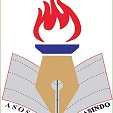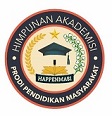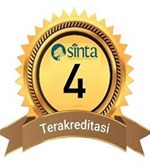Focus and Scope
Jurnal Transformasi is a peer-reviewed, open access journal that provides rapid publication of articles in all areas of Non Formal Education and related disciplines. The objective of this journal is to provide a veritable platform for scientists and researchers all over the world to promote, share, and discuss a variety of innovative ideas and developments in all aspects of Non Formal Education. The Journal welcomes the submission of manuscripts that meet the general criteria of significance and scientific excellence. Papers will be published shortly after acceptance. All articles published in Journal Transformasi are peer-reviewed.
Scope of Jurnal Transformasi are:
Community Development
Family Education
Training and Courses
Informal Education
Section Policies
Articles
Peer Review Process
Every article that goes to the Jurnal Transformasi will be reviewed by at least 2 (two) reviewer in accordance with the theme of the article. Reviewers are unaware of the identity of the authors, and authors are also unaware of the identity of reviewers (double-blind/blind peer-review method). Reviewers are given four week to review the assigned article. The editorial team will give a decision to accept or reject the article based on the results of the review conducted by the reviewer. If the reviewers give recommendations that are significantly different, the editor will assign 1 (one) additional reviewer to be considered in giving a decision on the article. The language used in this journal is English (preferred) or Indonesia.
The author is expected to pay attention to the following points before entering the article in the JTNI:
Articles are not the result of the plagiarism of other people's articles. Jurnal Transformasi will ensure that every published article will not exceed 20% similarity Score (Articles found with plagiarism more than 20% are automatically rejected and authors are advised, if the article has a simmilarity below or equal to 20%). Plagiarism screening will be conducted by Editorial Board using Turnitin® Plagiarism Checker.
The article entered is never published and is not in the process of being published in another journal.
The submitted articles are adjusted to the Jurnal Transformasitemplate.
Peer review is designed to assess the contribution, validity, relevance, quality and often the originality of articles for publication. Its ultimate purpose is to maintain the integrity of science by filtering out invalid or poor quality articles.
From a publisher’s perspective, peer review functions as a filter for content, directing better quality articles to better quality journals and so creating journal brands.
Running articles through the process of peer review adds value to them. For this reason, publishers need to make sure that peer review is robust.
Reviewer can state the following four views for the submitted manuscript:
Acceptance for publication
Acceptance for publication after minor revision (it is decided after revisions are checked by the editorial board)
Reviewing again after the major revision is done. After revision is made by the writers of the study, it is evaluated for the second tour.
It is not published (rejection)
After reviewers’ evaluation is completed, views of the Reviewer are examined at least two weeks by editors and field editors.
Editors and field editors give final decision for the study by taking into consideration of views and suggestions of Reviewer. The final decision is sent to the author.
Open Access Policy
This journal provides immediate open access to its content on the principle that making research freely available to the public supports a greater global exchange of knowledge.
Publication Ethics
Publication Ethics and Malpractice Statement
Jurnal Transformasi Non Formal Informal (JTNI) is a peer-reviewed journal. It is available online as open access sources as well as in print. This statement clarifies the ethical behavior of all parties involved in the act of publishing an article in this journal, including the author, the editor-in-chief, the Editorial Board, the reviewer, and the publisher. This statement is based on COPE’s Best Practice Guidelines for Journal Editors.
Ethical Guideline for Journal Publication
The publication of an article in Jurnal Transformasi Non Formal Informal (JTNI) is an essential building block in the development of a coherent and respected network of knowledge. It is a direct reflection of the quality of the work of the authors and the institutions that support them. Peer-reviewed articles support and embody the scientific methods. It is therefore important to agree upon standards of expected ethical behavior for all parties involved in the act of publishing: the author, the editor, the reviewer, the publisher, and the society. As the publisher of Jurnal Transformasi Non Formal Informal (JTNI) takes its duties of guardianship over all stages of publishing seriously and it recognizes its ethical and other responsibilities. JTNI committed to ensuring that advertising, reprint or other commercial revenue has no impact or influence on editorial decisions.
Publication Decisions
The editors of Jurnal Transformasi Non Formal Informal (JTNI) is responsible for deciding which articles submitted to the journal should be published. The validation of the work in question and its importance to researchers and readers must always drive such decisions. The editors may be guided by the policies of the journal's editorial board and constrained by such legal requirements as shall then be in force regarding libel, copyright infringement, and plagiarism. The editors may confer with other editors or reviewers in making their decisions.
Plagiarism Screening
It is basically author’s duty to only submit a manuscript that is free from plagiarism and academically malpractices. The editor, however, double checks each article before its publication. The first step is to check plagiarism against offline database developed by JTNI and, secondly, against as much as possible online databases.
Fair Play
An editor at any time evaluates manuscripts for their intellectual content without regard to race, gender, sexual orientation, religious belief, ethnic origin, citizenship, or political philosophy of the authors.
Confidentiality
The editors and any editorial staff must not disclose any information about a submitted manuscript to anyone other than the corresponding author, reviewers, potential reviewers, other editorial advisers, and the publisher, as appropriate.
Disclosure and Conflicts of Interest
Unpublished materials disclosed in a submitted manuscript must not be used in editors' own research without the express written consent of the author.
Duties of Reviewers
Contribution to Editorial Decisions
Peer review assists the editors in making editorial decisions and through the editorial communications with the authors may also assist the author in improving the quality of the paper.
Promptness
Any selected referee who feels unqualified to review the research reported in a manuscript or knows that its prompt review will be impossible should notify the editors and excuse himself from the review process.
Confidentiality
Any manuscripts received for review must be treated as confidential documents. They must not be shown to or discussed with others except as authorized by the editor.
Standards of Objectivity
Reviews should be conducted objectively. Personal criticism of the author is inappropriate. Referees should express their views clearly with supporting arguments.
Acknowledgement of Sources
Reviewers should identify relevant published work that has not been cited by the authors. Any statement that an observation, derivation, or argument had been previously reported should be accompanied by a proper citation. A reviewer should also call to the editors' attention any substantial similarity or overlap between the manuscript under consideration and any other published paper of which they have personal knowledge.
Disclosure and Conflict of Interest
Privileged information or ideas obtained through peer review must be kept confidential and not used for personal advantage. Reviewers should not consider manuscripts in which they have conflicts of interest resulting from competitive, collaborative, or other relationships with any of the authors, companies, or institutions related to the papers.
Review Process
Every manuscript submitted to Humanika is independently reviewed by at least two reviewers in the form of "double-blind review". Decision for publication, amendment, or rejection is based upon their reports/recommendation. In certain cases, the editor may submit an article for review to another, third reviewer before making a decision, if necessary.
Duties of Authors
Reporting Standards
Authors of reports of original research should present an accurate account of the work performed as well as an objective discussion of its significance. Underlying data should be represented accurately in the paper. A paper should contain sufficient detail and references to permit others to replicate the work. Fraudulent or knowingly inaccurate statements constitute unethical behavior and are unacceptable.
Originality and Plagiarism
The authors should ensure that they have written entirely original works, and if the authors have used the work and/or words of others that this has been appropriately cited or quoted.
Multiple, Redundant, or Concurrent Publication
An author should not in general publish manuscripts describing essentially the same research in more than one journal or primary publication. Submitting the same manuscript to more than one journal concurrently constitutes unethical publishing behavior and is unacceptable.
Acknowledgement of Sources
Proper acknowledgment of the work of others must always be given. Authors should cite publications that have been influential in determining the nature of the reported work.
Authorship of the Paper
Authorship should be limited to those who have made a significant contribution to the conception, design, execution, or interpretation of the reported research. All those who have made significant contributions should be listed as co-authors. Where there are others who have participated in certain substantive aspects of the research project, they should be acknowledged or listed as contributors. The corresponding author should ensure that all appropriate co-authors and no inappropriate co-authors are included on the paper, and that all co-authors have seen and approved the final version of the paper and have agreed to its submission for publication.
Disclosure and Conflicts of Interest
All authors should disclose in their manuscript any financial or other substantive conflict of interest that might be construed to influence the results or interpretation of their manuscript. All sources of financial support for the project should be disclosed.
Fundamental errors in Published Works
When an author discovers a significant error or inaccuracy in his/her own published work, it is the author’s obligation to promptly notify the journal editor or publisher and cooperate with the editor to retract or correct the paper.
Allegations of Research Misconduct
Research misconduct means fabrication, falsification, citation manipulation, or plagiarism in producing, performing, or reviewing research and writing the article by authors, or in reporting research results. When authors are found to have been involved with research misconduct or other serious irregularities involving articles that have been published in scientific journals, Editors have a responsibility to ensure the accuracy and integrity of the scientific record.
In cases of suspected misconduct, the Editors and Editorial Board will use the best practices of COPE to assist them to resolve the complaint and address the misconduct fairly. This will include an investigation of the allegation by the Editors. A submitted manuscript that is found to contain such misconduct will be rejected. In cases where a published paper is found to contain such misconduct, a retraction can be published and will be linked to the original article.
The first step involves determining the validity of the allegation and an assessment of whether the allegation is consistent with the definition of research misconduct. This initial step also involves determining whether the individuals alleging misconduct have relevant conflicts of interest.
If scientific misconduct or the presence of other substantial research irregularities is a possibility, the allegations are shared with the corresponding author, who, on behalf of all of the coauthors, is requested to provide a detailed response. After the response is received and evaluated, additional review and involvement of experts (such as statistical reviewers) may be obtained. For cases in which it is unlikely that misconduct has occurred, clarifications, additional analyses, or both, published as letters to the editor, and often including a correction notice and correction to the published article are sufficient.
Institutions are expected to conduct an appropriate and thorough investigation of allegations of scientific misconduct. Ultimately, authors, journals, and institutions have an important obligation to ensure the accuracy of the scientific record. By responding appropriately to concerns about scientific misconduct, and taking necessary actions based on evaluation of these concerns, such as corrections, retractions with replacement, and retractions, Jurnal Transformasi Non Formal Informal (JTNI) will continue to fulfill the responsibilities of ensuring the validity and integrity of the scientific record.
















